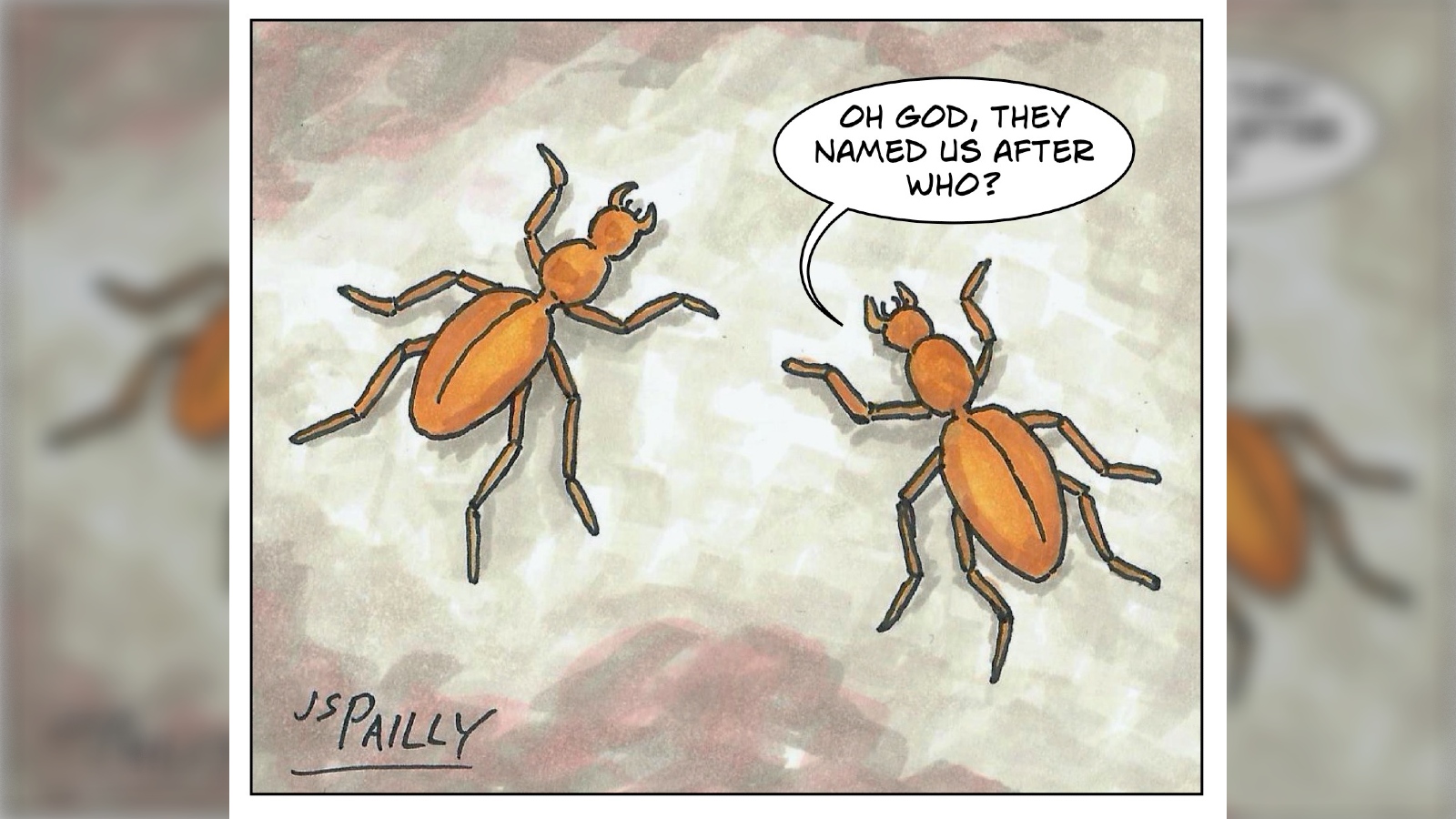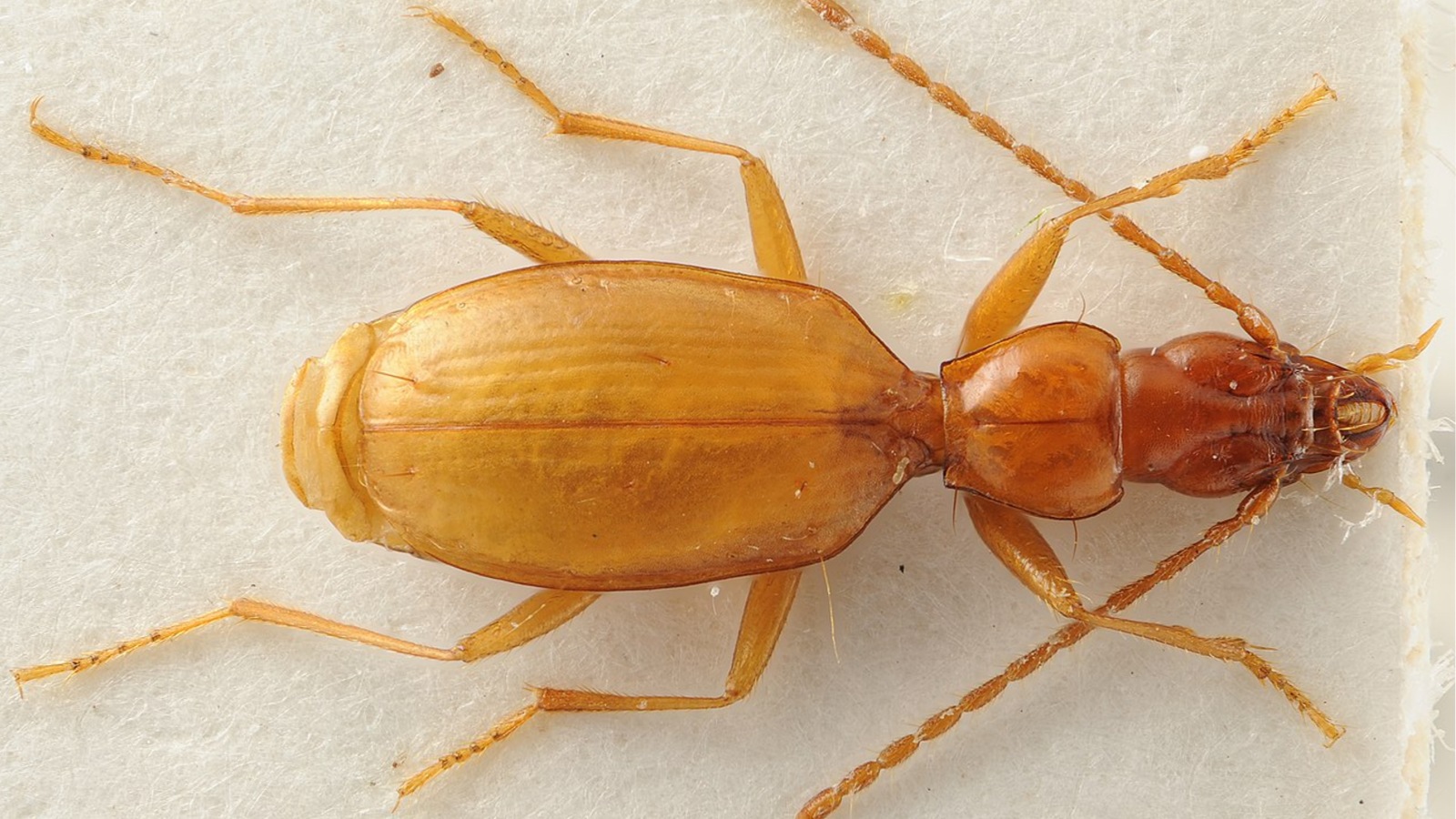Should we rename the Hitler beetle or the Mussolini butterfly? Scientists are shockingly divided.
Some scientists are pushing for species named after offensive people such as Hitler to be renamed, but the official governing body that guides species renaming is opposed.
Get the world’s most fascinating discoveries delivered straight to your inbox.
You are now subscribed
Your newsletter sign-up was successful
Want to add more newsletters?

Delivered Daily
Daily Newsletter
Sign up for the latest discoveries, groundbreaking research and fascinating breakthroughs that impact you and the wider world direct to your inbox.

Once a week
Life's Little Mysteries
Feed your curiosity with an exclusive mystery every week, solved with science and delivered direct to your inbox before it's seen anywhere else.

Once a week
How It Works
Sign up to our free science & technology newsletter for your weekly fix of fascinating articles, quick quizzes, amazing images, and more

Delivered daily
Space.com Newsletter
Breaking space news, the latest updates on rocket launches, skywatching events and more!

Once a month
Watch This Space
Sign up to our monthly entertainment newsletter to keep up with all our coverage of the latest sci-fi and space movies, tv shows, games and books.

Once a week
Night Sky This Week
Discover this week's must-see night sky events, moon phases, and stunning astrophotos. Sign up for our skywatching newsletter and explore the universe with us!
Join the club
Get full access to premium articles, exclusive features and a growing list of member rewards.
Scientists are calling for animals with offensive names, such as those named after fascist dictators like Adolf Hitler and Benito Mussolini, to be renamed as soon as possible. The demands come after the organization in charge of naming these species ruled out scrapping the controversial names earlier this year to prevent confusion among researchers.
All known living and extinct species of animals, plants and microbes have a two-word scientific name, such as Homo sapiens for modern humans, which is used by every scientist who refers to that species. The first word (e.g., Homo) is the genus name, which is given to all closely related species, and the second word (e.g., sapiens) is given to a single species. (Species also have common names, which are easier to change. Some species have multiple common names — for example, orca and killer whale refers to the same species.)
The scientists who discover a new species or genus are normally given the responsibility of naming them. In recent times, this has led to a spate of species named after celebrities, such as Taylor Swift, Leonardo DiCaprio and Sir David Attenborough, as well as political figures, such as U.S. presidents. But in the past, this process has led to several species being named after more controversial figures, such as Hitler and Mussolini.
There are at least two species named after Hitler: Rochlingia hitleri, an extinct flying insect from the Carboniferous period (359 million to 299 million years ago) that was discovered by a German paleontologist in 1934; and Anophthalmus hitleri, a blind cave beetle from Slovenia that was named by German researchers in 1937. Mussolini's name was given to a butterfly species, Hypopta mussolinii, which is native to Libya — one of the countries occupied by Italy during Mussolini's tenure. Other controversial names include species named after slave traders, colonialists and, more recently, cryptocurrency companies.
In addition to being insensitive and outdated, these names can cause problems for the animals themselves. For example, A. hitleri has been driven close to extinction because neo-Nazi collectors pay thousands of dollars for their specimens, according to the Financial Times.
Related: How long do new species take to evolve?
Many scientists now believe it is time to acknowledge these past mistakes and leave the controversy behind by renaming the species. However, the organizing body in charge of naming animal species is strongly opposed to the idea.
Get the world’s most fascinating discoveries delivered straight to your inbox.
In January, the International Commission on Zoological Nomenclature (ICZN) — the organization that approves and records the names of all animal species — published a paper in the Zoological Journal of the Linnean Society, in which they recommended "the continued usage of scientific names as [originally] prescribed."
The ICZN argues that changing a species' name will cause confusion among researchers, as the affected species will have two separate names in scientific literature. This goes against the organization's primary goal for animal names: stability. ICZN researchers also noted that there are hundreds of thousands of animal species named after people or places and that renaming some will open the possibility of many others being challenged.
But in a new series of editorials, published Aug. 23 in the Zoological Journal of the Linnean Society, dozens of researchers argue against the ICZN's original decision.
"We cannot prioritize stability over social justice," Marcos Raposo, a taxonomist at the National Museum of the Federal University of Rio de Janeiro in Brazil and lead author of one of the new articles, told Science magazine.
The researchers argue that science should not be exempt from wider societal changes in favor of making researchers' lives easier. "The biological sciences are inextricably a part of society," one group of researchers wrote. "As such, it is important to understand that biology, including the associated field of zoological nomenclature, should not operate in a vacuum completely independent of societal norms."
Even if the ICZN wants to discourage the renaming of species, the most egregious names should still be changed, Anjali Goswami, a paleontologist at the Natural History Museum in London and president of the Zoological Journal of the Linnean Society, told Science magazine. "There are ways that we can at least start to make some progress on the worst offensive names and then move towards a better practice," she added.
One solution proposed by pro-renaming researchers is a special ICZN committee dedicated to debating the ethics of questionable names. However, the ICZN argues that they are taxonomists first, not ethicists.
This is not the first controversy surrounding species names. Botanists have already had this debate about plant species with problematic names, which reached an apex in 2021, according to The Conversation. The issue will be put to a vote at the 2024 International Botanical Congress in Madrid next July, and the result could help influence how the ICZN reacts in the future.

Harry is a U.K.-based senior staff writer at Live Science. He studied marine biology at the University of Exeter before training to become a journalist. He covers a wide range of topics including space exploration, planetary science, space weather, climate change, animal behavior and paleontology. His recent work on the solar maximum won "best space submission" at the 2024 Aerospace Media Awards and was shortlisted in the "top scoop" category at the NCTJ Awards for Excellence in 2023. He also writes Live Science's weekly Earth from space series.
 Live Science Plus
Live Science Plus













